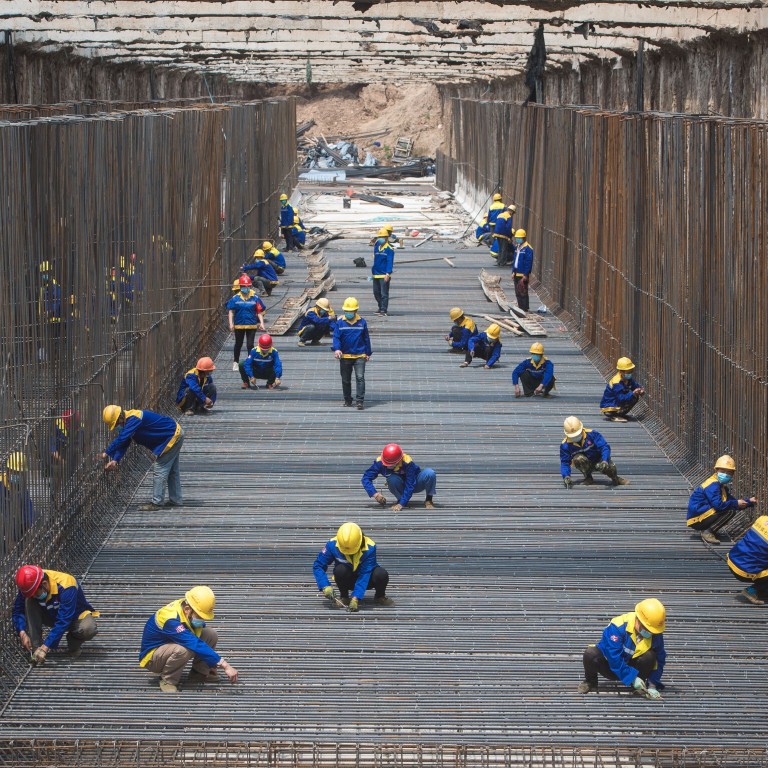
China’s credit risks are down in most sectors, but payment delays persist in construction and energy, survey finds
- Newly released poll of 600 companies across 13 sectors in China finds that Beijing’s stimulus measures to support the economy have largely eased credit risks
- Survey attributes payment delays to customers’ financial difficulties, as some had no access to government support
Given Beijing’s stimulus measures to support the economy, Chinese credit risks appear to be on the decline, but there is still considerable exposure in China’s construction and energy sectors, according to a new survey.
Although fewer companies experienced payment delays in 2020 compared with 2019, the proportion of firms in both the construction and energy sectors that reported payment delays longer than 180 days on invoices totalling more than 10 per cent of their annual turnover doubled to more than 60 per cent last year, according to the new analysis by credit insurance firm Coface.
The Coface survey, which was conducted between February and April and included more than 600 companies across 13 sectors in China, attributed the payment delays to customers’ financial difficulties, as some had no access to government support.
“Looking ahead, Coface expects corporate bond defaults and insolvencies in China to increase in 2021, especially among sectors that accumulated higher cash flow risks in 2020 due to the pandemic,” said Bernard Aw, economist for Asia-Pacific at Coface.
Even though the survey showed China’s uneven economic recovery has caused delayed payments in certain sectors, fewer respondents reported overdue payments in 2020 than in the previous year. Firms in 11 out of 13 sectors reported a decline in payment delays, with the wood; pharmaceuticals; information and communications technology; and transport sectors reporting the largest drops.
There was no change in retail, while construction saw an increase in the average payment delays, measured by total days after the due date, from 109 to 117 days. The energy sector recorded 100 days of payment delays, one day less than in 2019, but that was still “at higher risk than the average”, according to Coface.
Some 57 per cent of respondents reported overdue payments in 2020, down from 66 per cent in 2019. On average, payment terms shortened by 11 days in 2020, falling to 75 days, while the distribution of credit terms leaned more towards a shorter period than a longer one, the survey showed.
The decline in payment delays reflected, in large part, the government’s strong policy response to offset the impact of the pandemic on business activity, the report said, adding that these included tax relief measures, loan guarantees and loan interest waivers.
While there is a great deal of uncertainty regarding the speed at which the world will be able to recover from the pandemic – particularly as India is suffering from a deadly second wave of the coronavirus, and with a global third wave potentially looming – firms were optimistic about China’s economic prospects. A total of 73 per cent of respondents expected growth to improve this year – up significantly from 44 per cent in 2020.
This optimism was accompanied by a greater share of firms anticipating higher sales and cash flows over the following 12 months, the report said.
Consequently, 62 per cent of respondents expected their business activity to return to pre-Covid-19 levels in less than a year, while nearly a quarter estimated a recovery period of between one and two years.

